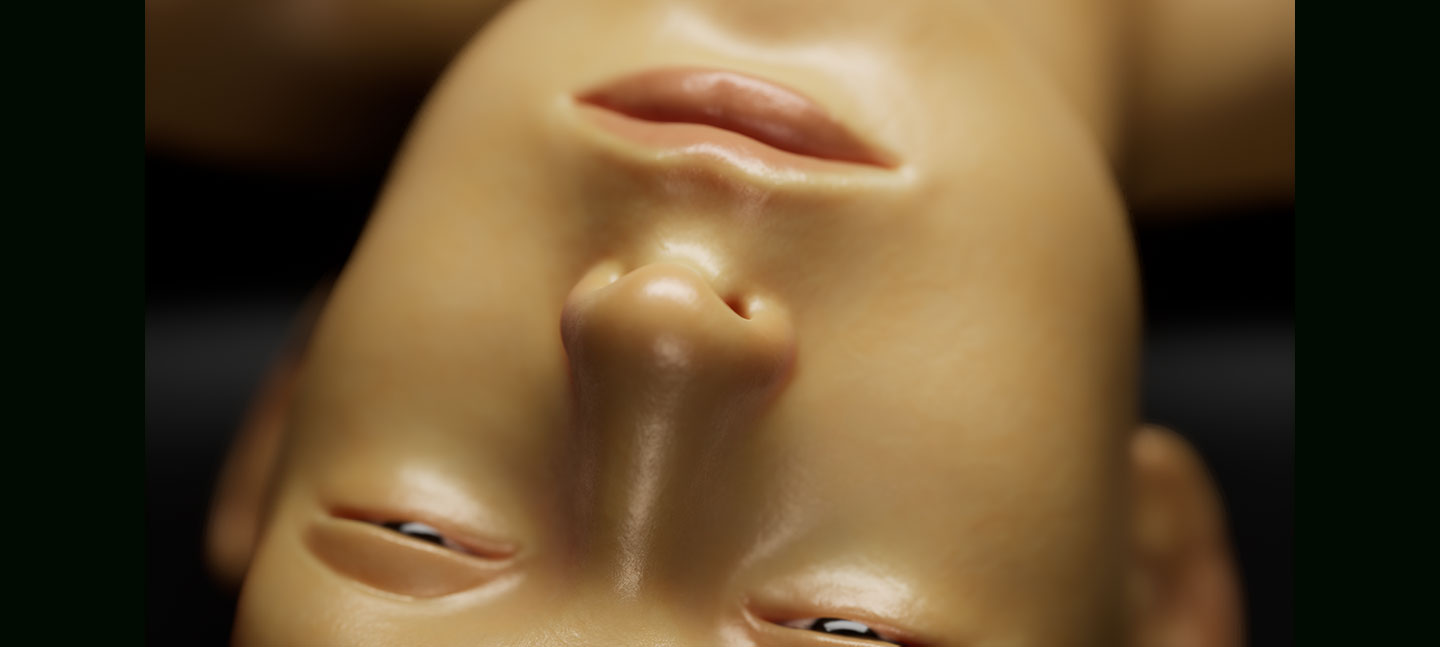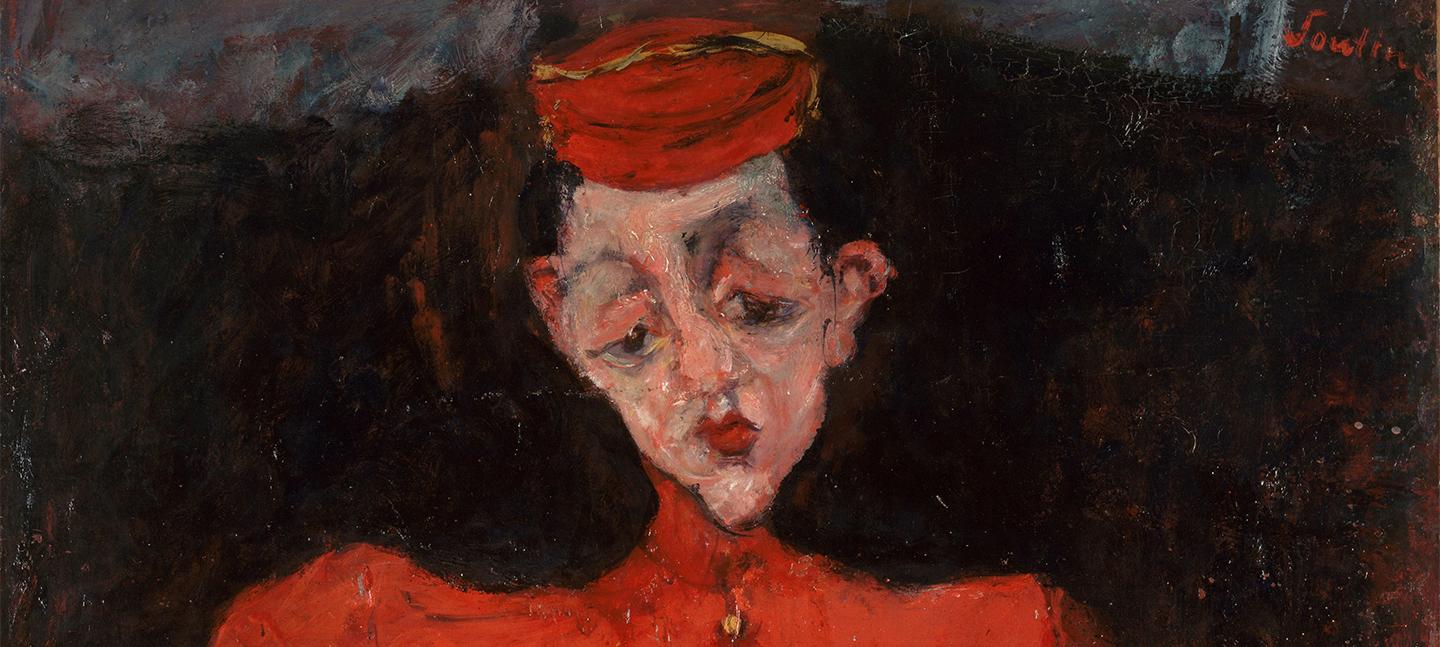Seen by many as the heir to Vincent van Gogh, in the early 1920s Soutine became fascinated by the cooks and waiting staff of French hotels and restaurants, attired in boldly coloured uniforms. Over the next decade, these humble models sat for him in Paris and the south of France. The resulting series of portraits offer powerful images of a new social class of service personnel, who moved from aristocratic households of past centuries to the luxury hotels and restaurants that arose in the late 19th and early 20th century.
These often-overlooked figures from France’s most fashionable places of leisure, including the famous Maxim’s restaurant in Paris, appealed to Soutine’s idea that profound emotion and a deep sense of humanity could be found in such modest sitters. He strived to achieve the most forceful effects of colour from the bold whites, reds and blues of their different liveries.
These portraits played a key role in establishing Soutine’s reputation and turned him from a struggling painter into a wealthy one. When he started the series, Soutine, an immigrant from Russia, was living in near-poverty alongside other artists, including his closest friend, Amedeo Modigliani (1884-1920). In 1923 the American collector Albert C. Barnes saw one of Soutine’s early paintings of a pastry chef and thought it one of the greatest modern works he had ever seen. He demanded to see more paintings by Soutine and bought some fifty works on the spot. This helped lift Soutine out of his desperate circumstances and brought him to greater prominence.
His portraits of hotel and restaurant workers became especially prized by other collectors and today are considered among his greatest achievements. This major exhibition is the first time Soutine has been exhibited in the United Kingdom in 35 years.







